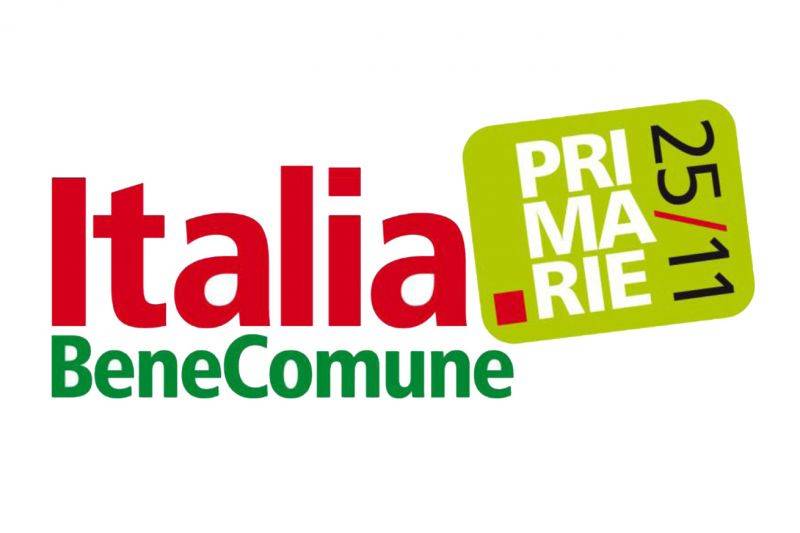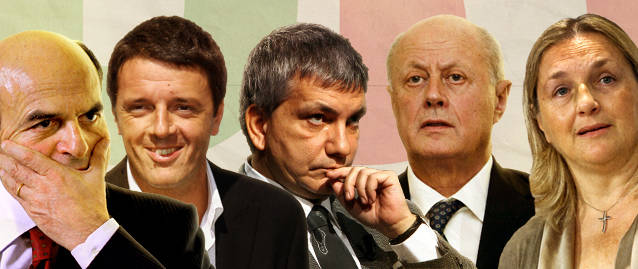PD Primaries: A Vote for Democracy
ROME - The ballot box at the primary elections held by the Partito Democratico (PD) on Sunday, November 25, held a welcome surprise. For months the walkup has been of corruption scandals which have left no party untouched, not even the PD.
Not all the scandals involved politicians, of course: in the North cynical doctors on pharmaceutical company payrolls are accused of using patients as guinea pigs to test new products; one patient died. But the scandals have especially smeared politicians and their clientele, and party leaders and pundits have feared that voters are so turned off by politics that the PD primary turn-out would sink to half that of the previous primary vote, to 2 million instead of 4 million. Instead, over 3.1 million turned out to vote, with many waiting hours in line. Some of the 9,232 improvised polling stations, all staffed by volunteers, remained open into the late evening to allow as many as possible to vote. It was, in the end, a vote for democracy itself, and not only PD party leaders and activists rejoiced at this.
At this writing not all the votes were counted, but it was already clear that next Sunday's run-off will pit the top front-runners against each other: party secretary Pierluigi Bersani, who is walking away with almost 45% of the vote (1,393,990) , and his young rival, Matteo Renzi, with around 36% (2,203,790). (For more results, see: www.italiabenecomune.it) Although a PD Bersani faction crowed today that in Sunday's run-off "Bersani will win 60%," it is not a certainty that Bersani is a shoo-in, and Renzi has already promised to redouble his campaign efforts. The conservative daily Il Giornale's comment was that, "Bersani may have come first, but Renzi has already won the challenge."
And perhaps more than that. Nichi Vendola, preferred by some 16% of the voters, was third, but he will be courted by both Bersani and Renzi and will carefully negotiate to whom he throws that healthy chunk of the electorate Sunday. The other candidates - Laura Puppato with 2.6% and the leftist Bruno Tabacci, l.4% - fared less well, but if Bersani and Renzi are close enough in a head-on clash, how Puppato and Tabacci advise their voters will also matter.
"The vote was evenly distributed all over the country," declared a PD spokesman today, alleging that voters showed little difference between the North and the South, and that young people did not particularly prefer Renzi over Bersani. But others disagree, pointing out that throughout the Red Belt - Tuscany, Umbria and part of Emilia, where Bersani was born in a mountain town near Piacenza in the Emilia-Romagna Region) - Renzi surged well ahead of Bersani, with around 50%. Not surprisingly, in Florence, where he is mayor, the Renzi vote was 52%. "From [Bersani] Renzi snatched a good part of the red zone, even in Emilia-Romagna. And now he'll go out fishing for Vendola's votes," sentenced Il Giornale. Renzi's own supporters are optimistic because, they say, the voters for both Renzi and Vendola share a desire for the new; theirs was a protest vote.
In both Lombardy in the North and in the Italian South, Bersani forged solidly ahead at 45.7% while at the same time claiming around 50% in the South of the Campania, Calabria, Sardinia and Sicily. In the Abruzzo, Molise and Puglia, Vendola outperformed Renzi.
In addition, some 15,000 Italians living abroad also voted. Brussels topped the list so far with 1,312 participants. There the victory went to Bersani (37%) followed by Vendola (28%), with Renzi third (26%). In Paris, where 860 voted (twice the number in 2005), Vendola was well ahead of the others (40.6%) followed by Bersani (28.6%) and Renzi (23.3%).
While the PD results were monopolizing the headlines, the struggle over whether to hold or not to hold their own primary election has left the Partito della Liberta' (PdL) in chaos. The rift between former Premier Silvio Berlusconi and the party secretary he had personally selected,Angelino Alfano, has burst into the open as never before. Alfano, with strong backing in the PdL, is promoting the holding of a primary election in early December, as the party has already decided, but Berlusconi now opposes the primary on grounds that it is costly, and that he knows a good call center which could handle the primary via telephone. As a result of this cavalier attitude, a number of Berlusconi's former faithful, including ex-minister Giorgia Meloni, have quit his faction in the party he created. In front of the PdL headquarters on Via dell'Umilta' in Rome, Alfano's supporters held a sit-in Monday in defense of the primary. Another group demonstrated in front of Berlusconi's Roman residence. "I am not a candidate for premier," Berlusconi just announced, but elsewhere he speaks of launching a new party or reviving the old Forza Italia.
And in the meantime the emergency Premier Mario Monti is making it clear that he is available in the future as needed. This past week President Giorgio Napolitano said in no uncertain terms that Monti, as a life senator, cannot run for office at present. This may sound rigid, but at the same time amounted to a proposal that Monti be available after the forthcoming elections (perhaps - still perhaps - to take place in March) either to succeed himself on grounds of a political stalemate or to succeed Napolitano himself.



































i-Italy
Facebook
Google+
This work may not be reproduced, in whole or in part, without prior written permission.
Questo lavoro non può essere riprodotto, in tutto o in parte, senza permesso scritto.